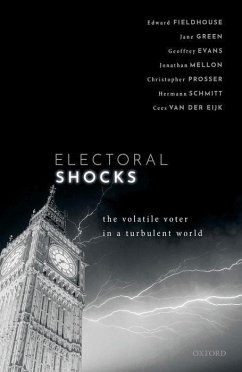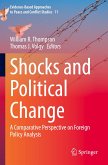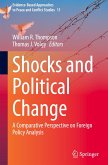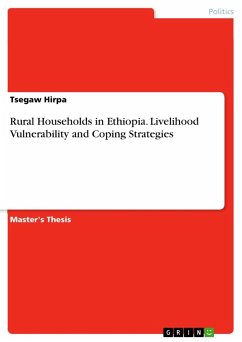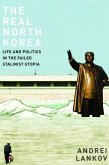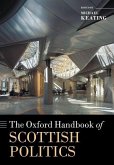Edward Fieldhouse, Jane Green, Geoffrey Evans, Jonathan Mellon, Christopher Prosser, Hermann Schmitt, Cees Van Der Eijk
Electoral Shocks
The Volatile Voter in a Turbulent World
Edward Fieldhouse, Jane Green, Geoffrey Evans, Jonathan Mellon, Christopher Prosser, Hermann Schmitt, Cees Van Der Eijk
Electoral Shocks
The Volatile Voter in a Turbulent World
- Gebundenes Buch
- Merkliste
- Auf die Merkliste
- Bewerten Bewerten
- Teilen
- Produkt teilen
- Produkterinnerung
- Produkterinnerung
This book offers a novel perspective on British elections, focusing on the role of electoral shocks in the context of increasing electoral volatility.
Andere Kunden interessierten sich auch für
![Shocks and Political Change Shocks and Political Change]() Shocks and Political Change105,99 €
Shocks and Political Change105,99 €![Shocks and Political Change Shocks and Political Change]() Shocks and Political Change105,99 €
Shocks and Political Change105,99 €![Rural Households in Ethiopia. Livelihood Vulnerability and Coping Strategies Rural Households in Ethiopia. Livelihood Vulnerability and Coping Strategies]() Tsegaw HirpaRural Households in Ethiopia. Livelihood Vulnerability and Coping Strategies47,95 €
Tsegaw HirpaRural Households in Ethiopia. Livelihood Vulnerability and Coping Strategies47,95 €![No One's World No One's World]() Charles A. KupchanNo One's World24,99 €
Charles A. KupchanNo One's World24,99 €![Real North Korea C Real North Korea C]() Andrei LankovReal North Korea C28,99 €
Andrei LankovReal North Korea C28,99 €![The Oxford Handbook of Scottish Politics The Oxford Handbook of Scottish Politics]() The Oxford Handbook of Scottish Politics224,99 €
The Oxford Handbook of Scottish Politics224,99 €![Afghanistan from the Cold War Through the War on Terror Afghanistan from the Cold War Through the War on Terror]() Barnett R RubinAfghanistan from the Cold War Through the War on Terror101,99 €
Barnett R RubinAfghanistan from the Cold War Through the War on Terror101,99 €-
-
-
This book offers a novel perspective on British elections, focusing on the role of electoral shocks in the context of increasing electoral volatility.
Hinweis: Dieser Artikel kann nur an eine deutsche Lieferadresse ausgeliefert werden.
Hinweis: Dieser Artikel kann nur an eine deutsche Lieferadresse ausgeliefert werden.
Produktdetails
- Produktdetails
- Verlag: Oxford University Press
- Seitenzahl: 306
- Erscheinungstermin: 11. Februar 2020
- Englisch
- Abmessung: 236mm x 155mm x 23mm
- Gewicht: 590g
- ISBN-13: 9780198800583
- ISBN-10: 0198800584
- Artikelnr.: 57825912
- Herstellerkennzeichnung
- Libri GmbH
- Europaallee 1
- 36244 Bad Hersfeld
- gpsr@libri.de
- Verlag: Oxford University Press
- Seitenzahl: 306
- Erscheinungstermin: 11. Februar 2020
- Englisch
- Abmessung: 236mm x 155mm x 23mm
- Gewicht: 590g
- ISBN-13: 9780198800583
- ISBN-10: 0198800584
- Artikelnr.: 57825912
- Herstellerkennzeichnung
- Libri GmbH
- Europaallee 1
- 36244 Bad Hersfeld
- gpsr@libri.de
Edward Fieldhouse is Professor of Social and Political Science at the University of Manchester. He is principal investigator of the Scientific Leadership Team of the 2015 and 2017 British Election Studies. He is co-author of over seventy journal articles, chapters, and books on a range of topics including voting behaviour, turnout, and electoral geography. Jane Green is Professor of Political Science and British Politics at the University of Oxford and Professorial Fellow at Nuffield College, Oxford. She is the Director of the Gwilym Gibbon Centre for Public Policy at Nuffield College and Co-Director of the British Election Study. She is also an election analyst for ITV News. Jane Green is the author (with Will Jennings) of The Politics of Competence: Parties, Public Opinion and Voters , Cambridge University Press, and of many articles and chapters examining the over-time contextual basis of voting and party competition, and the basis of policy-based evaluations of political parties. She is a regular commentator on national media, winner of the Political Studies Association 'Research Communicator of the Year' (2015) and was part of the independent inquiry into the 2015 opinion polls. Geoffrey Evans is co-director of the British Election Study and Principal Investigator of the 2016 EU Referendum Study. Over the last 30 years he has undertaken numerous surveys and election studies in Britain, Northern Ireland, and Eastern Europe. His research examines the relationships between social divisions, political values and perceptions, and voting behaviour. In addition to over 150 journal articles and chapters he has authored or edited six books, including The New Politics of Class: The Political Exclusion of the British Working Class (with James Tilley), and Brexit and British Politics (with Anand Menon), both published in 2017. Jonathan Mellon is a research Fellow at Nuffield College, University of Oxford, working on the British Election Study. Jonathan works on the BBC's election night forecasts and as a consulting data scientist with the World Bank, OSCE, and Carter Center. He was awarded his DPhil in Political Sociology from the University of Oxford. His research interests include electoral behaviour in Britain and across the world and developing better measurements in social science both for traditional surveys and big data. Christopher Prosser is a Presidential Fellow at the University of Manchester and a non-stipendiary Research Fellow at Nuffield College, Oxford, working on the British Election Study. He also works as a psephologist for ITV. He has published numerous articles on political behaviour and party competition in Britain and Europe, polling, and survey research methods. Hermann Schmitt is co-director of the British Election Study and outgoing co-ordinator of the European Election Study. He has previously undertaken numerous social and electoral studies in Europe. His research examines the inter-relationship in political orientations and behaviours in European multi-level electoral democracies. In addition to over 100 journal articles and book chapters, he has authored or edited ten books and Special Issues of scholarly journals, as well as more than a dozen data base editions. Cees van der Eijk is Professor of Social Science Research Methods at the University of Nottingham; earlier he was Professor of Political Science at the University of Amsterdam. He was one of the co-directors of the British Election Study, and has (co) directed numerous surveys on elections in the Netherlands, the UK, and the European Union. He has (co)authored many books, scholarly articles, and book chapters on political science, comparative politics, elections, and political methodology.
1: Introduction
2: Volatility and Electoral Shocks
3: Turbulent British Politics: An Explanation
4: The Rise of the Volatile Voter
5: EU Accession Immigration and the Rise of UKIP
6: The Global Financial Crisis
7: Reward, Blame, and Guilt by Association? The electoral collapse of the Liberal Democrats
8: Scotland: A tale of two referendums
9: Brexit and the re-shaping of British electoral politics
10: Conclusions
2: Volatility and Electoral Shocks
3: Turbulent British Politics: An Explanation
4: The Rise of the Volatile Voter
5: EU Accession Immigration and the Rise of UKIP
6: The Global Financial Crisis
7: Reward, Blame, and Guilt by Association? The electoral collapse of the Liberal Democrats
8: Scotland: A tale of two referendums
9: Brexit and the re-shaping of British electoral politics
10: Conclusions
1: Introduction
2: Volatility and Electoral Shocks
3: Turbulent British Politics: An Explanation
4: The Rise of the Volatile Voter
5: EU Accession Immigration and the Rise of UKIP
6: The Global Financial Crisis
7: Reward, Blame, and Guilt by Association? The electoral collapse of the Liberal Democrats
8: Scotland: A tale of two referendums
9: Brexit and the re-shaping of British electoral politics
10: Conclusions
2: Volatility and Electoral Shocks
3: Turbulent British Politics: An Explanation
4: The Rise of the Volatile Voter
5: EU Accession Immigration and the Rise of UKIP
6: The Global Financial Crisis
7: Reward, Blame, and Guilt by Association? The electoral collapse of the Liberal Democrats
8: Scotland: A tale of two referendums
9: Brexit and the re-shaping of British electoral politics
10: Conclusions

